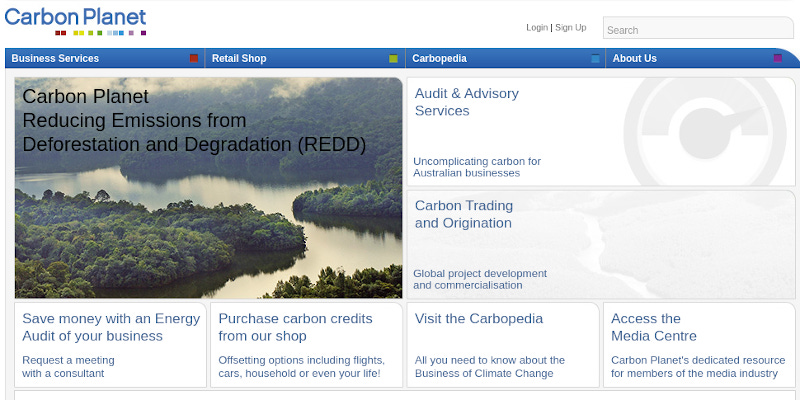Two press releases about Malaysia. The first is from the Bruno Manser Fund, publicising a video that shows how Najib Razak, Malaysia’s prime minister, was involved in vote buying for Robert Lau, the son of a timber tycoon. The second is from Carbon Planet, the Australian carbon trading company that got its fingers burnt in Papua New Guinea and is now starting to do business in Malaysia. Out of the frying pan, into the fire?
Of course, these two press releases are unrelated – except for the fact that they both concern the forestry sector in Malaysia. And I’m sure that Carbon Planet carried out rigorous due diligence before entering into a partnership with Green Science Sdn Bhd.
BRUNO MANSER FUND, BASEL / SWITZERLAND
8 June 2010
Timber corruption: Malaysian prime minister caught red-handed
Video evidence proves Najib Razak’s involvement in vote-buying for a Sarawak timber tycoon
SIBU, SARAWAK (MALAYSIA). An extraordinary video document released by Malaysia’s independent news service, Malaysiakini, is likely to cause the Malaysian Prime Minister Najib Abdul Razak major political long-term damage at both domestic and the international level. The seven-minute video sequence shows the Malaysian Prime Minister’s involvement in vote-buying for a local timber tycoon in the Sarawak town of Sibu.
The video was shot during a recent by-election campaign in Sibu, a Sarawak timber-industry centre located on the banks of the Rejang river. As a consequence of large-scale logging in the upper reaches of the Rejang, the river has repeatedly flooded parts of the town and the surroundings of Sibu and caused severe destruction.
During a campaign rally held at Rejang Park, Sibu, on 15 May 2010, Prime Minister Najib Abdul Razak promised the Sibu population that he would resolve their flood woes in return for their voting for Robert Lau, the candidate of the Barisan Nasional (BN) government coalition. Robert Lau is the son of timber tycoon and KTS chairman Lau Swee Nguong. KTS is one of Sarawak’s biggest timber conglomerates with business interests in Malaysia, China and the Amazon Basin in Brazil.
“If you deliver me Robert Lau on Sunday, on Monday I will ask (for) the cheque to be prepared. This is our deal tonight. What is the cheque you want?”, Najib asked a 1,000-odd crowd. The Malaysian Prime Minister went on to promise a government contribution of five million Malaysian Ringgit (US$ 1.5 million) for flood mitigation measures: “You help me, I help you.”
The video has caused widespread embarrassment among overseas Malaysians who are saying that Najib’s behaviour is a disgrace to the country. Despite the Prime Minister’s promises, the Sibu by-election was won by the Pakatan Rakyat opposition coalition in what has been termed the “Sibu miracle”. After the lost election, Najib said he would have to reconsider whether the Malaysian government would approve of the Sibu flood mitigation projects.
Political analysts are pointing to the fact that corruption is one of the reasons for voters to increasingly turn away from the Barisan Nasional coalition that has been in power ever since the formation of Malaysia in 1963.
Media Release
Carbon PlanetCarbon Planet partners with Malaysian based Green Science
16 Mar 2010
Carbon Planet has partnered with Green Science Sdn Bhd (“Green Science”), a subsidiary of Corro Shields based in KL.
The objective of the partnership is to identify, secure, develop and commercialise projects that yield carbon credits.
The management team of Green Science flew to Adelaide late last year to execute the partnership at Carbon Planet’s head office.
Under the exclusive partnership for Malaysia and its neighbouring regions, Green Science will assist asset owners, who are investing in cleaner energy sources for their operations, to generate additional revenue through the international carbon markets, therefore making those projects financially rewarding.
This is done through the process of developing and commercialising the project through the UN’s CDM (Clean Development Mechanism) or VCS (Voluntary Carbon Standard) and registering the project to create carbon credits.
Each ton of CO2 reduced in the atmosphere is equal to one carbon credit. These credits are then sold into international markets and funds are channeled to the asset owners (based in Malaysia).
The carbon credit market was worth over US$100b in 2009 and is expected to grow to over US$1 trillion in the next 10 years (source: Carbon Finance Report).
Carbon Planet will be providing full fledge capacity building to Green Science in the areas of CDM and REDD (Reducing Emissions through Deforestation and Forest Degradation).
This technology transfer and capacity building agreement incorporates provision for technical personnel to train the team at Green Science, assist Malaysian based asset owners in the fields of oil & gas exploration, manufacturing and forestry to qualify their projects under international standards and in provide ongoing support and commercialisation services for these projects.
Malaysia, due to its vast natural resources including oil, gas and forests, is set to benefit from the fastest growing industry in the world.
The benefit to Malaysia is twofold, first it will assist in reducing the harmful greenhouse gases and resulting pollution that enter the atmosphere and second, it will bring foreign exchange to the national exchequer.






Comments following the original post on REDD-Monitor.org are archived here: https://web.archive.org/web/20171026153606/http://www.redd-monitor.org:80/2010/06/09/carbon-planet-moves-into-malaysia/